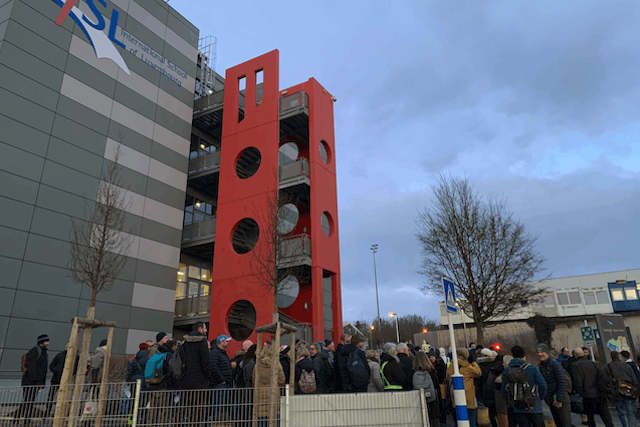The action comes after a symbolic and solidarity action from Monday to Wednesday this week in which staff staged a collective walk-in, and walk-out at the private international school in Merl, which union LCGB said did not impact school operations.
“This action has become necessary because negotiations for the renewal of the collective agreement have failed. The employer is proposing a salary scale for teachers with a lower salary increase than today,” the LCGB wrote on its website.
Contacted by Delano on Tuesday, LCGB union representative Céline Conter said that the new scale would increase salaries for teachers starting out and slow down the evolution. She said that depending on the number of years of experience, teaching staff would start to lose money.
“It’s difficult to say how much they would lose. It starts small, at around €10, but it can accumulate,” Conter told Delano.
18 months' of negotiations
Negotiations relating to the renewal of the collective working agreement date back to mid-2018. Some 270 school employees are covered by the collective working agreement, of which around 200 are teaching staff. According to Conter, the union and staff delegation made several requests to the school board as part of a wider package, which are now on hold because negotiations over the salary grid have reached a stalemate.
Conter said the board insisted the new salary evolution was necessary to ensure the school’s sustainability. “The unions said they should look at other elements where they can make savings. Perhaps in management or in the way of managing the school. We don’t understand why it is just teachers who are impacted,” Conter said.
The school issued the following comment on Tuesday upon request from Delano:
“The School regrets the course of action taken by the personnel delegates and the trade unions. The School continues to wish to find a reasonable solution to the current disagreement, given its original proposal, which did not seek to impact current staff. We hope the Office National de Conciliation will be able to help mediate efficiently in this matter.”
Gridlock
At the end of December 2019, the union learned that the board of governors of the school had referred the matter to the National Conciliation Office because of the gridlock.
At a meeting between the union and around 180 school staff in early January 2020, around 90% of staff voted to continue the struggle.
Conter did not rule out extending the period of action, depending on the outcome of next week’s plans to work to rule.
